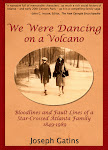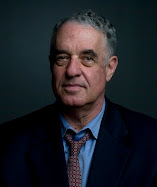
In Paris, Grandmother Eglé found relative freedom and rich reward, intellectually and spiritually, in the two decades between the world wars. Denied in love, battered by unholy matrimony and unable to afford staying in Atlanta with her only son, she had formally filed for divorce, and left her one-armed, womanizing husband, Joseph F. Gatins Jr., in 1920. Brief attempts at reconciliation in the States (1923) and in France (1924) had failed. By 1927, she was a young widow back in her native France, wearing the black dresses and plain black overcoats she was to wear for decades hence, her husband having succumbed to the double curse of tuberculosis and hard drink. But she kept his name.
Eglé and her son, Joseph F. Gatins III, had moved into a residence with a decidedly fancy address, 150, avenue des Champs d’Elysées, with her mother, her stepfather, the Swiss banker Henri Fischer, and her brother Charlic, a World War I cavalry veteran, former German prisoner of war and confirmed, life-long bachelor. She also found a second spiritual home—the first being the Roman Catholic Church—in the Salon Society that flourished in Paris between the world wars. “My life was truly pleasant. I moved in a very intellectual milieu,” she said. Her memoirs also make mention of following feminist and suffragist matters, linked particularly to Edmée de la Rochefoucauld, “with whom I busied myself over feminist questions, which truly absorbed me. I wanted equality for women."
Like many salon-goers, Eglé also traveled in the circle of American expatriates known as the Lost Generation, the motley collection of American wanderers, hard-drinking writers, publishers and adventurers seeking something other than what the United States had to offer. “In Paris between the two wars, it was marvelous,” said Grandmother, who had just turned 30 years old in 1922. “Especially from the 1920s to 1929-30—and the Americans were kings of the place. It was the day of Hemingway and Sylvia Beach and all those people—and Gertrude Stein, [whom] I never liked. We used to go see Sylvia Beach because she banked with Hanzi Fischer,” Eglé said. “She had a bookstore and I saw Hemingway there several times.”
As for other intellectuals in her life, she felt especially attracted to an old and distant cousin, Pièrre Teilhard de Chardin, a Jesuit priest and now well-regarded paleontologist, whose works were spurned by the Vatican and his Jesuit hierarchy at the time. “He was famous for his paleontological research and he’d tell me: ‘Don’t read my books. Keep on believing, like a good girl from Brittany, in goblins and fairies.’ The Jesuits treated him really shabbily,” Eglé said in her memoirs. “They fired him. They made him leave Paris, defrocked him and shipped him to New York, where he died. No one attended his funeral. But when he became famous worldwide, they made him their great man. I’ve always resented the Jezzies because of that. "





No comments:
Post a Comment